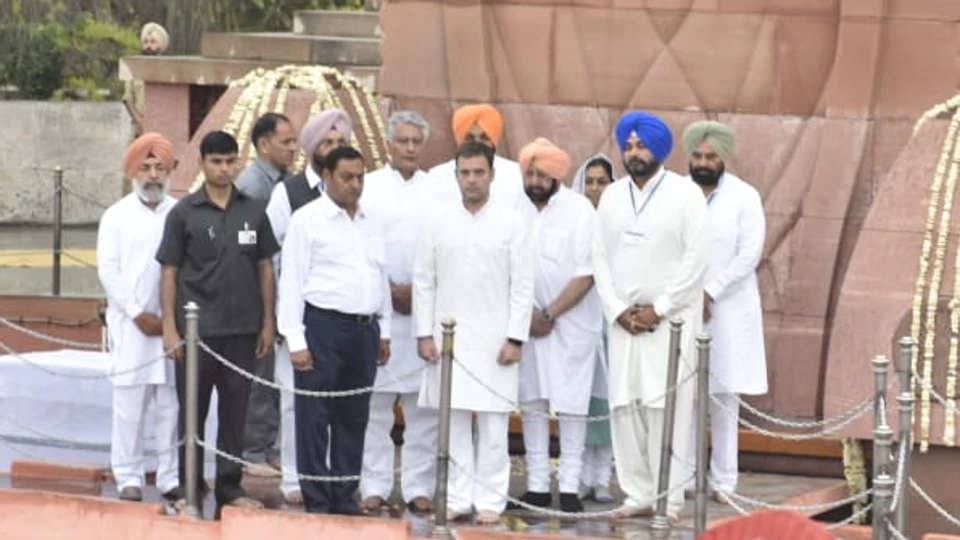
Congress president Rahul Gandhi on Saturday reached Jallianwala Bagh to pay floral tribute to martyrs of Jallianwala Bagh massacre of 1919. Gandhi was accompanied by Punjab Chief Minister Captain Amarinder Singh.
Hundreds of people were massacred by British forces on April 13, 1919. Gandhi visited the Jallianwala Bagh National Memorial in Amritsar to pay homage to the martyrs.
“The cost of freedom must never ever be forgotten. We salute the people of India who gave everything they had for it. Jai Hind,” Gandhi wrote in the visitors’ book at the memorial.
Gandhi reached Amritsar on Friday night. He paid a visit to Golden Temple complex where he offered prayers at the Akal Takht, the highest temporal seat of Sikh religion.
British High Commissioner to India Dominic Asquith also visited the memorial to pay homage to those killed in Jallianwala Bagh massacre. He was accompanied by his deputy Andrew Ayre. Asquith termed the firing on a peaceful gathering by the British force “a shameful act”.
“The events of Jallianwala Bagh 100 years ago today reflect a shameful act in British-Indian history. We deeply regret what happened and the suffering caused. I am pleased today that the UK and India have and remain committed to developing further a thriving 21st century partnership,” Asquith noted in the visitors’ book at the memorial.
Captain Singh on Friday reiterated the demand for “an unequivocal official apology from Britain” for the Jallianwala Bagh massacre. He said it was “a heart-wrenching moment in India’s history” while asserting that the people of India wanted an unequivocal apology from Britain for the atrocity.
Punjab cabinet minister Navjot Singh Sidhu, Congress in-charge of Punjab Asha Kumari and Punjab Congress president Sunil Jakhar were among those who accompanied Gandhi during his visit to the Jallianwahal Bagh National Memorial.
April 13 marks the 100th anniversary of the Jallianwala Bagh massacre, in which British forces commanded by Brigadier General Reginald Dyer opened fire on hundreds of peaceful protesters who had gathered there to voice their opposition to the oppressive Rowlatt Act of the colonial government.
The Jallianwala massacre is one of the darkest chapters of India’s freedom struggle against the British occupation. British Prime Minister Theresa May earlier this week expressed “regret” over the killing of innocent people 100 years ago. However, she stopped short of tendering an apology, a long-pending demand from the civil rights activists.